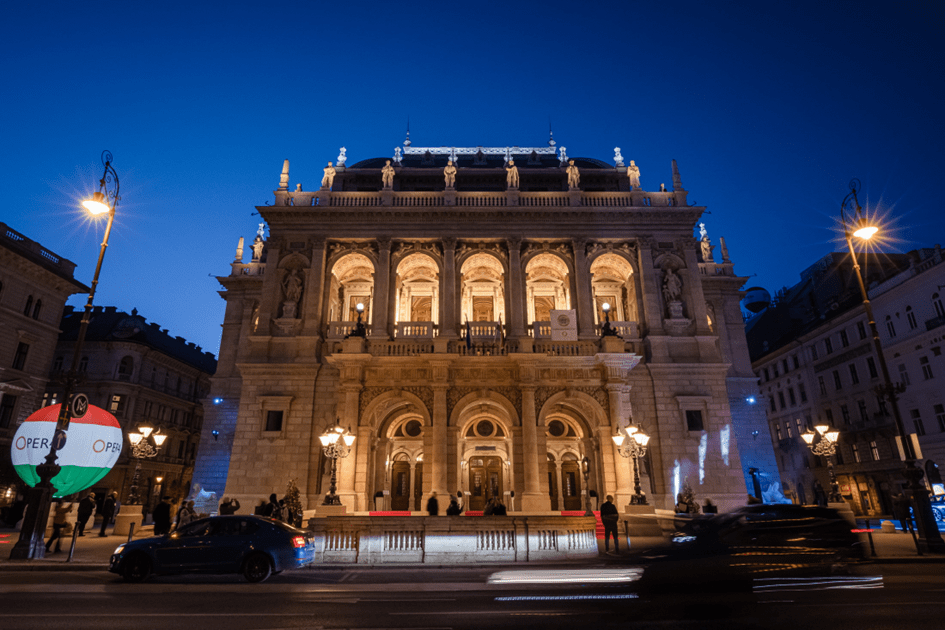1st October is the International Music Day. On this occasion, prepare to be transported on an enchanting voyage through Hungary’s musical chronicles, where the threads of melody and rhythm have woven a captivating narrative that traverses history and resonates with the present. From the lively rhythms of traditional dance houses, with a historical backdrop of celebrated composers like Liszt, Bartók and Kodály, to internationally acclaimed festivals, and a thriving contemporary music scene, the country stands deeply rooted in the world of music. As autumn approaches, Hungary’s gift of music reverberates far beyond its borders, showcasing its culture through the universal language of melody.
Historical Context: Preserving Traditions
The beginnings of Hungarian music go back to the depths of time. Comparative studies in modern musicology reveal that Hungarian music finds its roots in the folk music of Inner Asia’s people in its early stages, and later evolves to intertwine with the diverse folk, ecclesiastical, and classical music traditions of Europe. This forms the bedrock of Hungarian classical music culture, which also holds significance within European music of the 18th and 20th centuries. Alongside these musical underpinnings, cultural practices like táncház (dance house) and fonó (folk music house) stand as pillars of its musical heritage. These traditions not only preserve the nation’s rich past but also create a bridge to its thriving present.
Visit Haydn’s Hungarian Headquarters
Hungary’s largest and most splendid baroque building, the Esterházy Palace in Fertőd, is located near the Austrian border. Its halls still host summer concerts and its music hall houses an exhibit evoking the castle’s musical life. The Esterházy Palace building complex is the main landmark of the town of Fertőd and one of Hungary’s key tourist attractions. The Esterházys had a major impact on Hungarian history since the 17th century: prominent among them are an archduke, an archbishop, a chief justice, and also a prime minister. The musical life of the Fertőd Palace earned a name throughout Europe under director Joseph Haydn, who played his famous Farewell Symphony within these walls in 1772. Habsburg court members and Maria Theresa frequented the palace’s musical programmes. Classical music programmes and concerts continue to play a vital role in the life of the palace. Summer concerts are held in the former banquet halls, while the music hall houses an exhibit presenting Haydn’s art and the palace’s musical life of yore.
Music Maestros: Liszt, Bartók, Kodály
Hungary boasts an illustrious history of musical genius, from Franz Liszt’s virtuosic piano compositions to Béla Bartók and Zoltán Kodály’s pioneering work in ethnomusicology. The Kodály Method, an innovative approach to music education, has influenced music teaching worldwide.
The Liszt Ferenc Academy of Music, founded by Ferenc Liszt himself, remains a cornerstone of music education and a hub for nurturing budding talent. The piano virtuoso, composer, conductor, teacher, author and philanthropist established the institution in 1875. \”Génie oblige!\” was his credo: the duty of an artist is to use his gifts for the benefit of humanity and to nurture genuine talent. Teaching at the Academy is rooted in this principle, reflecting the vision of its open and versatile internationally recognised founder, who was years ahead of his time and the straight line can be traced through four generations from Liszt to the Academy’s piano professors of today. The Liszt Academy is proud to nurture the ongoing legacy of world-known Hungarian musicians like Liszt, Bartók, Kodály, Dohnányi, Hubay, Popper, Weiner, Ligeti and Kurtág, all of whom have shaped our traditions, style and approach. There are guided tours within the wonderful Art Nouveau building and you can also book tickets to listen to concerts.
Classical Extravaganza: Opera and Operetta
Hungary’s musical landscape is adorned with the majestic allure of opera and the enchanting charm of operetta. The country’s deep-rooted appreciation for classical music finds its pinnacle in the opulent productions gracing stages across the nation. From the grandeur of the Hungarian State Opera House to intimate theater spaces, opera casts its spell with timeless tales and soaring arias that echo through history. Operetta, on the other hand, adds a touch of whimsy and romance to the musical panorama. With its fusion of music and theater, operetta presents stories of love, intrigue, and wit, captivating audiences with melodies that linger long after the curtains close. Whether reveling in the passionate dramas of opera or delighting in the lighthearted melodies of operetta, Hungary’s classical scene continues to resonate as a treasure trove of artistic brilliance.
Get immersed in the House of Hungarian Music
The House of Music Hungary, a distinctive and intricate institution dedicated to musical education, opened its doors in the City Park in January 2022. This venue also marked the country’s inaugural comprehensive exhibition showcasing the history of music. Despite Hungary’s renowned musical heritage, no institution in the country had previously hosted such a multifaceted exhibition on Hungarian music in the broader context of European music. The iconic building, designed by the renowned Japanese architect Sou Fujimoto, now hosts a multitude of captivating programs and exhibitions tailored to music enthusiasts.
Symphony of Spring: Budapest’s Grand Cultural Affair – The Spring Festival
Budapest Spring Festival: Since its first edition in 1981, the Budapest Spring Festival (BTF) has been one of Hungary’s biggest cultural festivals. The annual, multi-day event features traditional performances (classical music, jazz, opera, ballet, theatre), exhibitions, folklore and outdoor events. The multi-day event usually takes place in mid-spring, around the spring solstice, and lasts for around two weeks. https://
Harmonious vibes beyond Budapest
The enchanting melodies of Hungary are not confined to the capital alone. Big cities like Debrecen, Szeged, and Miskolc contribute to the country’s musical tapestry with their own symphonies of festivals, concerts, and cultural events. Visitors can immerse themselves in the lively atmosphere of events like the BartókPlus Opera Festival in Miskolc, or the Haydneum festival and programs taking place in Fertőd and in Budapest.
Big names to look out for today
Embark on a musical odyssey through the vibrant talents that define Hungary’s contemporary music scene:
- The Hungarian State Folk Ensemble (MÁNE) was founded in 1950 with the aim of discovering, preserving and developing the traditions of the Hungarian people’s songs, dances and music, and then making them popular among Hungarians and introducing them to the people of other countries. https://hagyomanyokhaza.hu/en/
hsfe/the-ensemble - The Budapest Festival Orchestra is one of the best-known Hungarian symphony orchestras abroad and in Hungary. The orchestra is a regular guest at many concert halls and music festivals abroad. E.g. Salzburg (Festival), Lucerne (Festival), Montreux, Zurich (Tonhalle), New York (Carnegie Hall), Los Angeles (Hollywood Bowl), Montreal, Paris (Autumn Festival, Theatre des Champs-Elysées), Berlin (Berliner Philharmoniker). https://www.bfz.hu/en/
- The traditionalist artistic work of the 100-member Gipsy Orchestra is invaluable and unique in the world. Besides classical music, they also play traditional Hungarian gypsy music, Hungarian melodies and folk songs. https://www.100tagu.hu/en/
- Ádám György is a regular performer at Carnegie Hall in New York and is one of the best-known Hungarian artists of our time. Not only as a performer, but also as the founder and artistic director of the Liszt Ferenc International Piano Competition in New York, he brings the art of Liszt to millions of people year after year. The Liszt Festival, under his direction, has grown to become the world’s largest celebration of Liszt beyond the borders of Europe. He performed at the opening ceremony of the 2012 European Football Championship in Warsaw on 8 June 2012 and at the opening ceremony of the 2023 UEFA Champions League final in Istanbul on 10 June 2023. https://www.facebook.com/
adamgyorgy - Festival Academy Budapest was established in 2002 under the guidance of Katalin Kokas and Barnabás Kelemen. It offers a wide-ranging programme of amazing concerts, masterclasses, lectures, round-table discussions, and public dress rehearsals. Furthermore, following an exhilarating violin competition and splendid concerts, you can have fascinating conversations potentially with the artists performing at the Festival even until sunrise after supper in a nearby restaurant with one of the country’s finest Gypsy band playing in the background. https://fesztivalakademia.hu/
en/about-the-festival/
- HAVASI is a contemporary composer who is able to impress the audience in the most elegant concert halls, theatres, sports halls or even the most popular summer festivals at the same time. In recent years he has made it to the closed community of the international elite of artists all by himself. After ten years of experiments, he created his peculiar and unique musical world. He has sold more than 500.000 concert tickets and received long-standing ovations in many of the world’s most iconic concert halls, such as the Carnegie Hall, the Sydney Opera House, and the Wembley Arena. https://havasi.eu/




